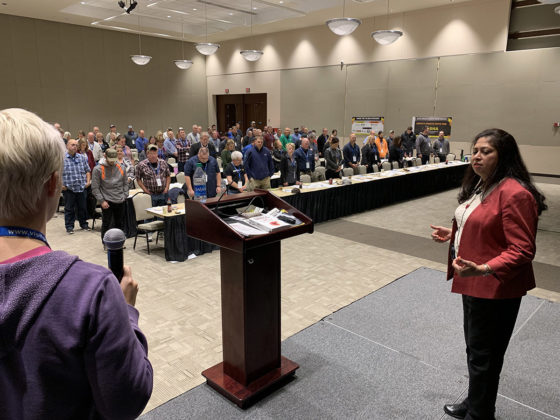Many people feel scared and don’t know what to do when someone talks about suicide. I want these stories to help those people.
Ethan Call, a college student, was worried when he noticed that his friend—who normally attended church every Sunday didn’t show up to teach Sunday School that day. He knew that she had been struggling with depression and anxiety. Hence, he texted her and asked if she was okay but she wasn’t.
Gwen Cubit, a mother from Texas, was worried when her son texted her from Maryland asking her to call him as that was urgent. She picked up the phone and found him in the throes of an emotional crisis—he wasn’t sure if he wanted to kill himself or someone else.
Think about the last time you worried about a friend, a family member or a neighbor who is suffering from depression and anxiety.
Many of us can sense when something isn’t quite right. However, the fear of being intrusive, overstepping our bounds or saying the wrong thing to prevent us from acting. So, far too often, we do nothing to help.
Luckily, Ethan and Gwen knew exactly what to do. They both had recently been trained in Mental Health First Aid. Here they learned how to recognize when someone might be experiencing depression and anxiety problem and furthermore mastered an action plan to help.
Noticing the red flag, Ethan left the church and finally drove to his friend’s house.
Immediately, the Mental Health First Aid action plan kicked in. He sat with her and listened to her about her feelings—without judgment—over milk and cookies. Ethan gave her information about where and how she could access professional help. He encouraged her to turn to her friends, family and faith community for support. Now, Ethan’s friend is working with a counselor and doing much better. Finally, she got help.
Gwen immediately recalled an important strategy from her Mental Health First Aid training: stay calm.
She kept her son talking, asked questions about what he was doing, where he was and where his family was. She took his risk of suicide seriously and encouraged him to go to the hospital with his father-in-law, who lived in the area. Her son agreed, and she stayed on the phone with him until she heard him check in with the administrative nurse at the ER. Her son was diagnosed with depression and anxiety however, he is doing much better today. He got help.
Each of these stories begins the same way: a person trained in Mental Health First Aid notices that something isn’t right. And each story ends with a person in distress getting the help they need.
But when people don’t know what they’re supposed to do or don’t have an action plan for experiencing a mental health or substance use problem—the stories can end much differently.
Mental Health First Aid takes the fear and hesitation out of offering support to someone in an emotional crisis. It provides critical tools for helping people that can mean the difference between life and death.
Today, more than 550,000 Americans are trained in Mental Health First Aid. That’s 550,000 people who would know when and how to react to a person in crisis. And I and our team at Shifa Health are proud to be a partner in that progress. But in a nation of more than 318 million, 550,000 is not enough.
This month, we celebrate Mental Health Month.
We recognize the incredible strides we’ve made in promoting understanding, increasing opportunities and improving the lives of people living with mental health and substance use problems.
Mental Health Month is an opportunity to reflect on how far we’ve come. It is also an opportunity to acknowledge how much more work there is to do.
In January, the National Council for Behavioral Health launched the Be 1 in a Million campaign—a national effort to train one million people in Mental Health First Aid.
Since the launch of the campaign, more than 50,000 new first aiders have been trained.
Do you think you would want to be prepared if and when your friend needs you? Be 1 in a Million. Get trained. Spread the word. Offer support to someone in need. Because—as Ethan, Gwen and so many like they know—recognizing how and when to step in and offer help can change, even save, a life.
Let’s all be part of the campaign.
Who knows, someone trained may be there to help you (or a loved one) when you need them.
Please share this resource to help those that may be suffering from depression and anxiety.
In addition, don’t miss out on the simple and practical tools for minimizing stress and maximizing your joy sent right to your email. Sign up today and get an instant download of a 1-minute relaxation exercise for busy people.
Dedicated to your health and happiness
Dr. Rozina
#1 Best Selling Author, Speaker, and Psychiatrist
www.drrozina.com
Join me on Facebook, Twitter, LinkedIn, or sign up for my newsletter
The Stress to Joy® program is available in
eBook,
I share many tools and techniques that I have found to be helpful. They are not intended to replace treatments. Please seek treatment from licensed medical or health professionals as needed. I change all names for privacy.





Leave a Reply
You must belogged in to post a comment.